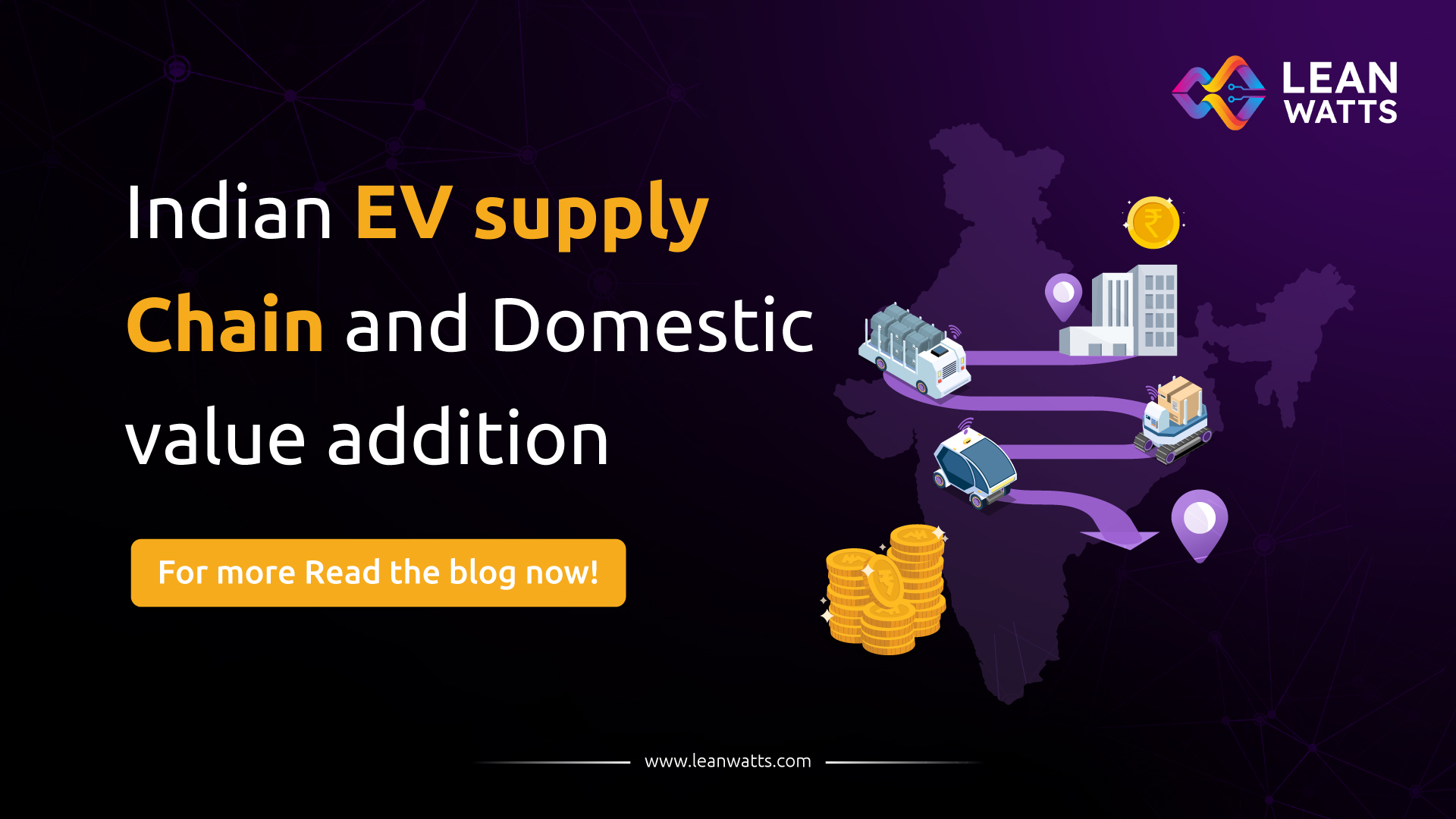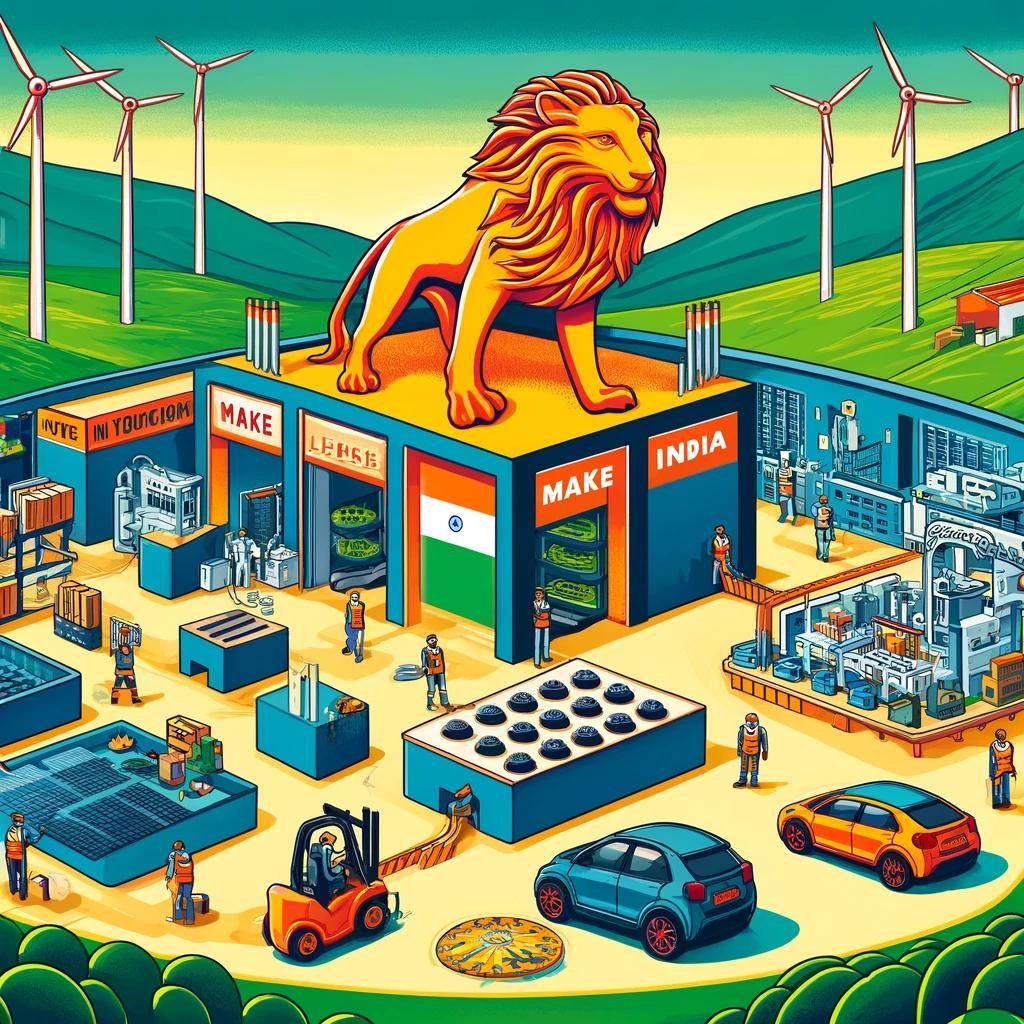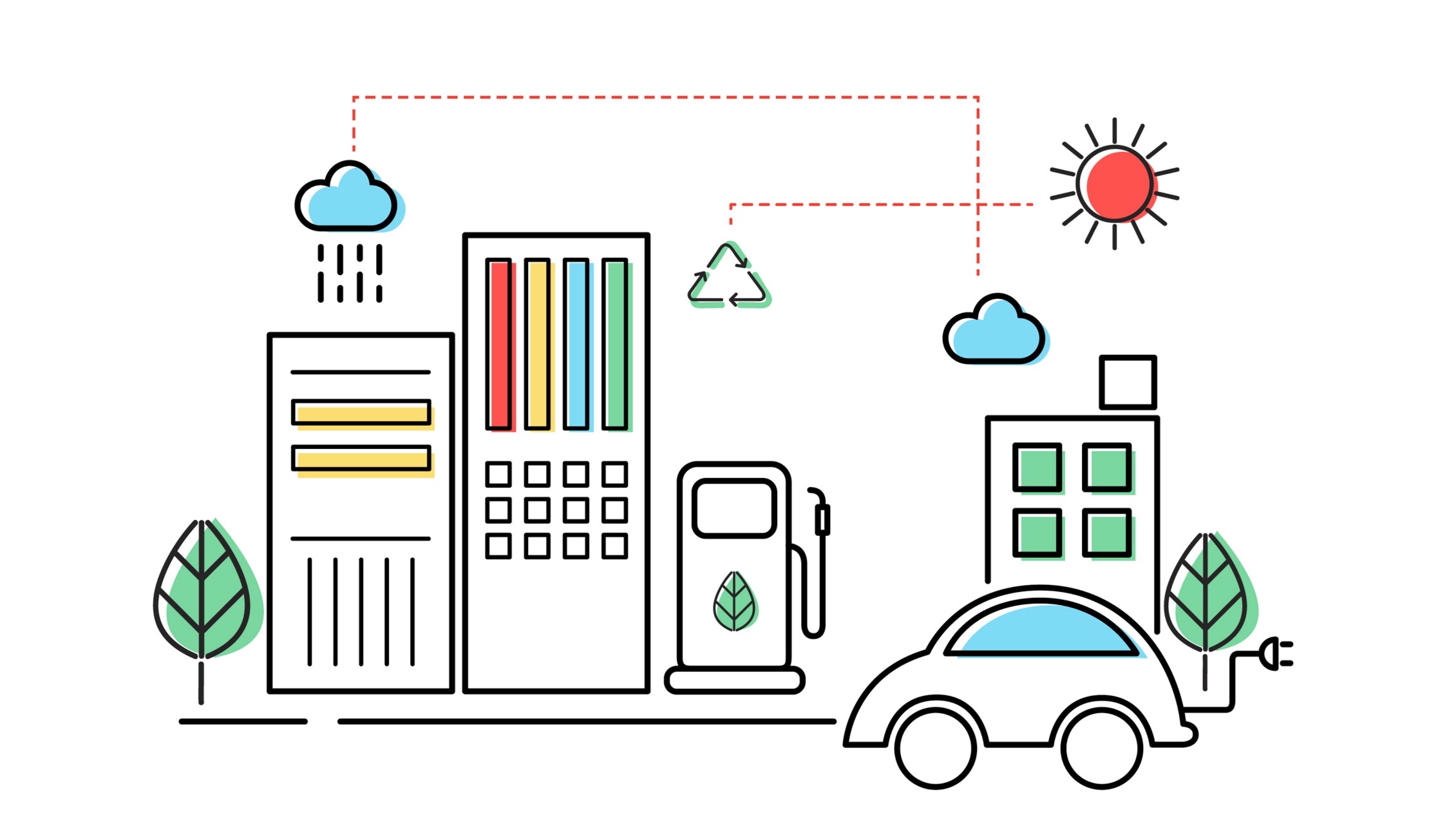
India’s electric vehicle (EV) industry is rapidly transforming. Let’s explore the current state of India’s EV supply chain and value addition, highlighting government efforts to propel India towards becoming a global leader in clean transportation. Dive in to discover the opportunities and challenges on the road to an electrified future!
EV Industry in India – Current Scenario
- Open Arms to Investment: With 100% Foreign Direct Investment (FDI) permitted, new production facilities are springing up, and efforts to improve charging infrastructure are gaining momentum.
- Government Thrust: The government is playing a key role through subsidies, policies promoting discounts for Indian-made electric two-wheelers, and initiatives like the PLI scheme to incentivize the production of EVs and hydrogen fuel cell vehicles. The total EV sales reached 1.53 million in 2023, up from 1.02 million in 2022, which shows a high rate of EV adoption.
- Aspiring for Global Leadership: India, currently the world’s fifth-largest automobile sector, aims to be the third by 2030. To achieve this, a shift towards “Shared, Connected, and Electric” mobility is underway, with the ambitious target of achieving 100% electrification by 2030.
Current EV localisation dynamics in India
Battery costs account for 30-40% of the electric vehicles cost and India is dependent on imported cells and raw materials . While government initiatives aim to boost domestic cell production, the process will be slow due to investment needs and technical challenges. This gap between demand and supply suggests continued reliance on cell imports in the long run, further complicated by OEMs’ existing contracts with global manufacturers.
Other Key Components for EVs:
Components related to electric vehicles’ electrical and electronic systems, including electric motors, power electronics, EV electrical architecture, and enhanced infotainment features, represent 15-20% of the total bill of materials (BoM) cost for the vehicle
- Electric Motors: BLDC motors that are locally manufactured rely heavily on Chinese imports for child parts. High-value motors like PMSM are still under development in India.
- Power Electronics: According to PwC estimates, high-voltage power electronics make up approximately 6-10% of the cost of an EV. For critical components like connectors, contactors, relays, and DC-DC converters, the majority of global supplies are dominated by China and Taiwan. Proprietary components including BMS, motor control units (MCUs) and VCUs, etc. need sub-components like IC (semiconductor chips), electronic child parts, TIMs, printed circuit boards (PCBs) which are again imported by Indian OEMs. There is dependence on China for fulfilling Controller area network (CAN) integration and testing requirements as well.
- Software: Software development for EVs is growing but localization is difficult without tier-1 support or in-house capabilities. Testing and flashing are increasingly done locally. OEMs are building capabilities on software to control performance and regular updates
Challenges on the Road: Hurdles to Jump
Building a strong domestic supply chain isn’t a joyride.
Here are the main roadblocks:
- Fragmented Ecosystem: Components such as advanced chemistry batteries, electric motors, power electronics, and software, which were not part of traditional setups, constitute approximately 50-60% of the system. Most of the components are not available in India and multiple small player trading make collaboration and quality control challenging
- Skill Gap: The future is electric, but are we skilled up for it? The industry needs a workforce trained in handling the complexities of EV component manufacturing. Bridging this skill gap is crucial.
- Tech Hurdles: While India is a powerhouse in IT, significant investment in research and development (R&D) and manufacturing capabilities in powertrain components is required to achieve domestic production at scale.
- Raw Material Access: Securing a steady supply of critical raw materials is crucial for long-term EV production sustainability.
- Financing Infrastructure: Developing a network of loans and incentives is crucial to make EVs more affordable for manufacturers and consumers.
From Imports to Innovation: Building a Self-Reliant EV Ecosystem

The Indian government’s INR 10,000 Crore FAME (Faster Adoption and Manufacturing of (Hybrid &) Electric Vehicles) scheme has provided a significant boost to EVs over the last few years. Large-scale investments are planned by major players like Mahindra & Mahindra, Maruti Suzuki, Tata Motors, Hero Electric, and Toyota, supported by government initiatives like:
- E-mobility Manufacturing Incentives: Encouraging industry participation through production incentives.
- Purchase Incentives: Lowering the cost of EVs for consumers through new EV policies and subsidies.
- FAME I & FAME II Schemes: Providing financial assistance for EV adoption. Fame II is replaced with EMPS now
- Production Linked Incentive (PLI) Schemes: Attracting investments in advanced automotive technology and high-value components.
- Scrappage Policy: Encouraging the replacement of older vehicles with newer, cleaner models.
- Enhanced Charging Infrastructure: Building a robust network of charging stations to address range anxiety.
- Reduced GST on EVs: Making electric vehicles more affordable.
- New EV Policy 2024: The Indian government has introduced a new electric vehicle (EV) policy offering import duty benefits to firms that invest at least USD 500 million in establishing manufacturing facilities within the country. This initiative is designed to attract leading international companies, including Tesla from the United States, to expand their production bases to India.
What Can the Industry Do More to Strengthen the EV Supply Chain?
The government is providing the spark, but industry players need to work together to turn it into a blazing fire. Here’s what needs to happen:

- Joining Forces: Imagine a Tesla shaking hands with a Mahindra! Collaboration between established manufacturers, nimble startups, and research institutions is key to accelerating innovation and technology development in core EV components. Establish specialised project management offices with cross-functional teams to streamline localization efforts and ensure successful product launches in international markets.
- Skilling Up the Workforce: The future workforce needs to be EV-ready. Investing in skill development programs can create a generation of technicians equipped to handle the intricacies of EV production.
- Quality Matters: Just like you wouldn’t trust a faulty charger with your prized EV, a strong focus on quality control throughout the supply chain is essential. This will not only enhance the reputation of Indian-made EV components but also ensure customer satisfaction.
- Consolidation: Consider consolidation among smaller players to create larger, more competitive entities within the supply chain.
- Design for local production: Embed teardowns (analysing competitor products) and benchmarking practices throughout the design phase to optimise products for cost-effective local manufacturing.
- Enhance internal capabilities: Focus on developing internal expertise in software and power electronics to ensure these aspects are fully adaptable for different regions during localization.
- Control critical components: Establish control towers to monitor critical components like semiconductors and rare earth materials, enabling proactive management of import costs and potential supply chain disruptions.
- Boost return on investment (ROI): Collaborate with existing suppliers and identify emerging local players to leverage existing relationships and foster a strong local supply base, ultimately increasing return on investment.
Leanwatts: Powering the Journey
As an EV tech company providing charging solutions, Leanwatts is right in the thick of things. We’re committed to:
- Reducing Reliance on Imports: By developing a home-grown supply chain and manufacturing innovative EV charging solutions in India, Leanwatts is helping to cut down on import dependence. This not only benefits the economy but also strengthens the domestic supply chain.
- Pushing the Limits on Quality and Efficiency: In house R&D facility at Leanwatts churns out cutting-edge hardware and firmware. We focus on delivering high-quality, reliable, efficient and custom-made EV charging solutions that are designed and made in India
The Road Ahead: A Collective Charge
Building a robust domestic EV supply chain demands a collective effort. By working together industry leaders, and research institutions can address the existing challenges, leverage government initiatives, and turn India into a powerhouse of EV technology. Not only will this power India’s own EV revolution, but it also has the potential to make India a global leader in clean mobility solutions. So, buckle up, the future of electric mobility is electrifying!
